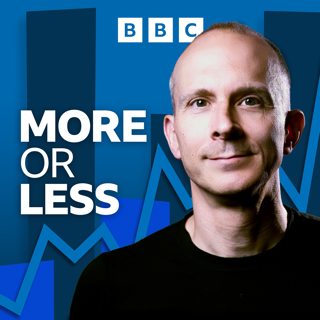
WS MoreOrLess: Does politics make us get our sums wrong?
To what degree do our personal opinions cloud our judgement? Yale University researchers have attempted to detect and measure how our political beliefs affect our ability to make rational decisions. The study suggests that our ability to do maths plummets when we are looking at data which clashes with our worldview. Ruth Alexander and Ben Carter consider Professor Dan Kahan's findings. This programme was first broadcast on the BBC World Service.
9 Nov 20139min

100,000 Christian martyrs?
It is claimed an average of 100,000 Christians have died because of their faith every year for the past decade: and that this is an 'unreported catastrophe'. The Vatican has called it a credible number. But is it? Ruth Alexander and Wesley Stephenson report.
2 Nov 20139min

WS MoreOrLess: Fertility - when is too late?
Women in their late thirties shouldn’t be as anxious about their prospects of having a baby as is commonly assumed, psychologist Jean Twenge argues. Tim Harford finds fertility experts agree. This programme was first broadcast on the BBC World Service.
26 Okt 20139min

WS MoreOrLess: Nobel Prize puzzle
Tim Harford tells the story of how two economists who disagree with each other have been jointly awarded the Nobel Prize. Eugene Fama has shown that stock markets are efficient, while Robert Shiller has shown that they're not. Tim interviews both professors about their findings, and this apparent contradiction.
19 Okt 20139min

The Hawthorne Effect
Tim Harford tells the story of the Hawthorne Experiments, one of the most famous social studies of the Twentieth Century. The finding – that workers are more productive if they are given attention - became known as the Hawthorne Effect. And he hears how the original data are now casting doubt on the legendary results. This programme was first broadcast on the BBC World Service.
12 Okt 20139min

WS MoreOrLess: Mosquitoes and elephants
Has the mosquito killed half the people who have ever lived? Tim Harford assesses the claim. Are 96 elephants a day being killed in Africa? Plus, a return to the subject of left-handers – could it be true that they're more likely to be criminal masterminds? This programme was first broadcast on the BBC World Service.
7 Okt 20139min

Underage drinking
Are hundreds of young children visiting A&E because of alcohol? Plus, an update on the Trumptonshire economy. And has the mosquito killed half the people who have ever lived? Tim Harford presents.
4 Okt 201327min

WS MoreOrLess: Population explosion?
"We just shut our eyes to the fact that the world's population is increasing out of control." Is broadcaster and naturalist Sir David Attenborough right about global population projections? And Tim Harford wonders whether it's true that Scotland is home to 20% of the world's redheads. This programme was first broadcast on the BBC World Service.
30 Sep 20139min





















